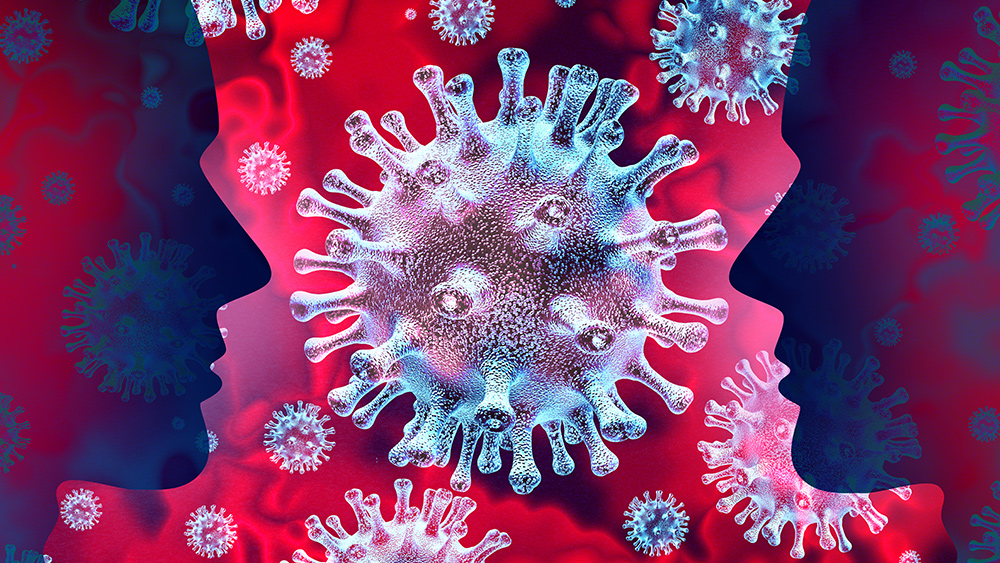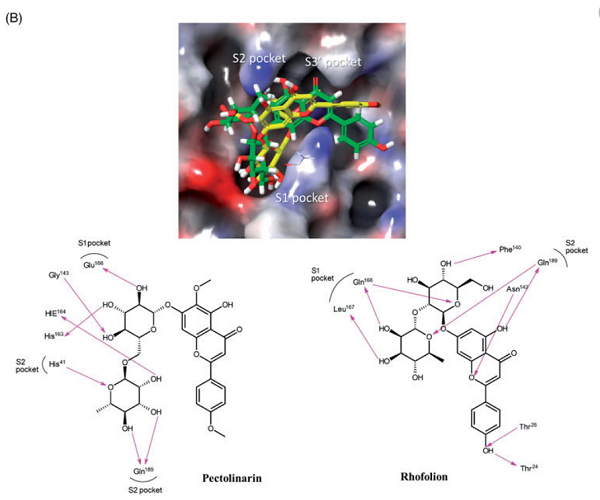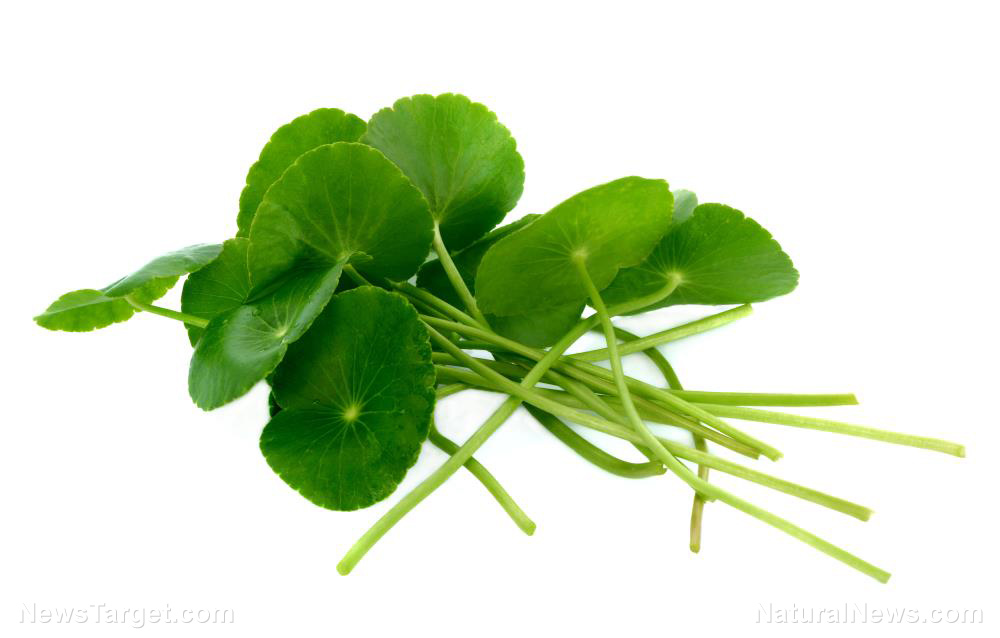We’ve already identified three natural molecules that inhibit coronavirus replication in the body… and they don’t come from Big Pharma
02/10/2020 / By Mike Adams

While the world of the brainwashed masses are waiting for Big Pharma to save them from the coronavirus pandemic with a drug or a vaccine, we’ve been researching molecules from nature that are known to inhibit coronavirus replication in the body.
So far, we’ve already identified three natural molecules. One of them is abundantly found in a common spice (that’s really orange), and the two other molecules are more rare, but still available from the world of nature.
These molecules target the coronavirus 3 chymotrypsin-like protease (3CL) enzyme, which is well known as a molecular target when searching for anticoronavirus inhibitors.
For example, this study published in BMC Structural Biology discusses the role of 3CL and why inhibiting this enzymatic function is a valid method for blocking coronavirus replication:
The 3CLpro has been validated as an effective drug target in several studies and has even been termed “the Achilles’ heel of coronaviruses” [8] making it an ideal target for the identification of novel lead compounds.
The coronavirus 3 chymotrypsin-like protease (3CLpro) is a validated target in the design of potential anticoronavirus inhibitors. The high degree of homology within the protease’s active site and substrate conservation supports the identification of broad spectrum lead compounds. A previous study identified the compound ML188, also termed 16R, as an inhibitor of the Severe Acute Respiratory Syndrome coronavirus (SARS-CoV) 3CLpro. This study will detail the generation of a homology model of the 3CLpro of the human coronavirus OC43 and determine the potential of 16R to form a broad-spectrum lead compound.
It turns out there was a huge wave of research into SARS following that outbreak from a few years ago. Scientists studied numerous botanicals, phytochemicals and food isolates that might show promise in halting SARS, which is also a coronavirus.
Many pharmaceuticals were tested as well, and because of that research, certain drugs are also documented to combat SARS. They are very likely to high efficacy against the nCoV coronavirus as well. Niclosamide, a prescription medication used to treat tapeworms, is one of the prescription drugs that should be immediately studied for treating coronavirus infections.
Search for “inhibition of SARS-CoV 3CL protease”
Many research papers already exist on the inhibition of SARS (a coronavirus) via the 3CL protease pathway.
For example, this paper from the Journal of Enzyme Inhibition and Medicinal Chemistry was published in January, 2020 and only has 117 views (so far), yet it provides the names of flavonoids that are determine to have an inhibitory effect against the SARS coronavirus.
The abstract even names the flavonoids, which are completely different from the three nutrients implied in the headline of this article, by the way:
Coronaviruses (CoVs) have been rising targets of some flavonoids. The antiviral activity of some flavonoids against CoVs is presumed directly caused by inhibiting 3C-like protease (3CLpro). Here, we applied a flavonoid library to systematically probe inhibitory compounds against SARS-CoV 3CLpro. Herbacetin, rhoifolin and pectolinarin were found to efficiently block the enzymatic activity of SARS-CoV 3CLpro.
This is theoretical research, not a clinical trial, but it’s not difficult to find which foods or herbs contain these flavonoids:
– Herbacetin
– Rhiofolin
– Pectolinarin

If you’re curious where herbacetin is found, it’s more common than you think. It’s an abundant flavonoid in flaxseed. Here’s a published study that talks about it.
Eat more flax… it might help and it certainly won’t hurt
Could inhibiting the coronavirus be as simple as eating flaxseed? Possibly, but the bigger realization is that eating flaxseed has no down side. Zero negative side effects. So if you eat flaxseed, you get all its cardiovascular benefits, lipid-regulating benefits and omega-3 metabolic benefits without needing any prescription, hospital visit or pharmacy payments.
That doesn’t mean you should rely on flaxseed alone to combat the nCoV coronavirus, of course, but it’s one of the many nutritional tools that may be available as a complementary nutritional strategy.
My professional estimation is that the amount of herbacetin in flaxseed is probably not high enough concentration to be very therapeutic in this context unless it were isolated as an extract. So you’d want to invoke many layers of nutritional strategies that provide your body with a wide array of natural molecules which are known to be useful for attacking the 3CL protease pathway.
Trees that grow in Taiwan, Korea and Japan already contain a powerful anti-coronavirus compound
As the title of this article implies, we’ve already identified three powerful molecules found in nature, and they are completely different from the three flavonoids mentioned above.
One of them is found in the bark of trees that naturally grow in Taiwan, Japan and Korea. Quite literally, the very people in Asia who are most threatened by this virus are living among the natural medicine in their own nations. But most people have been too brainwashed by western medicine to recognize natural medicine when they see it. So people in those countries will likely die, waiting for a drug or a vaccine while being buried right next to a medicinal plant that contained the cure they never recognized.
Another phytochemical that’s documented to help in this context is called “savinin,” and it’s found in plants that grow in China and are used in Traditional Chinese Medicine (TCM). Yet there are likely thousands of Chinese people dying right now from the coronavirus pandemic, even as this herb grows all around them.
That’s the cost of abandoning natural medicine and surrendering to the global pharmaceutical cartels: It cuts you off from the natural medicine that has always existed in the real world, forcing you to die while waiting for Big Pharma’s next “big cure” or “miracle vaccine” that never quite seems to materialize.
Nobody in China needs to die from the coronavirus. The cures are already there. But the cures are being ignored by the establishment. Only the Chinese Medicine clinics in China have any real clue how to beat this pandemic, and from the world of Chinese Medicine, beating it is surprisingly straightforward.
Rhiofolin comes from citrus peels
The rhiofolin flavonoid identified earlier is actually part of a patent called “Surface Sterilization by Misting with a Bioflavonoid Solution.” You can see that patent at this link on Justia.com:
The present application relates to the sterilisation of surfaces by misting. More specifically this present application relates to the use of compositions containing certain flavonoids for sterilisation of surfaces, including those present in hospitals, ambulances and kitchens, by misting.
The patent even names the bioflavonoids that achieve this effect:
Suitable compounds of Formula (I) include Neoeriocitrin, Isonaringin, Naringin, Hesperidin, Neohesperidin, Neodiosmin, Naringenin, Poncirin and Rhiofolin.
Guess where you find most of these compounds? Orange peels. The patent specifically names “bitter oranges” and advises, “It is particularly advantageous that extract of bitter oranges may be employed without the need for isolating individual flavonoids if desired.”
There already exist orange peel-based cleaning products that contain many of these compounds, if not all. Using such cleaners as an anti-viral misting agent holds particular promise in this context.
You can also purchase organic orange peel granules or powder, often sold as a spice for use in foods. While you wouldn’t normally want to gobble down large amounts of orange peels on a daily basis, adding a bit of orange zest to your smoothie would certainly increase your intake of a vast spectrum of bioflavonoids with various therapeutic properties.
How about some orange zest flax crackers?
Pectolinarin
The pectolinarin flavonoid identified above has been the subject of research for pharmacological activity. Guess where it’s found?
A weed.
The Latin name for the plant is Lantana camara, but it’s also known as “big sage” or “Spanish Flag” or “tickberry.” According to the Herbpathy.com entry, this herb has antimicrobial, antiseptic and antispasmodic properties. It’s also “insecticidal” and some extracts are used to protect garden vegetables from pests such as worms.
Should you rush out and start guzzling all these flavonoids? Not exactly. Start with foods and spices that are already well known to be widely consumed. Garlic, leeks and ginger are all potent spices with well documented chemical constituents that have numerous therapeutic properties. Eating more flaxseed can’t hurt, either.
I would stay away from experimenting with weeds that aren’t already well known to be safe for ingestion. Many weeds contain toxic substances. Act wisely and check with qualified experts who know about herbs, natural medicine and food molecules (such as us, here at the website you’re reading right now).
You don’t have to be afraid of the coronavirus; it’s easy to beat with natural molecules that are readily available right now
In the weeks ahead, Natural News will be revealing more molecules, foods, plants and herbs that may be effective against the nCoV coronavirus, backed by research related to the SARS coronavirus. While the rest of the world foolishly waits for a vaccine from Big Pharma, you can be eating your way to enhanced defenses against the coronavirus, taking advantage of the thousands of medicinal compounds found in everyday groceries, common herbs, superfoods and various natural medicines.
Right now, I am acquiring physical samples of two different rare sources of super highly effective molecules that are documented to inhibit 3CL protease. My goal is to quickly develop a quant method in the lab, via LC-MS-MS, to identify and quantitate the primary compound in each sample that’s known to be effective. Since I’ve done this before with other molecules such as CBD and glyphosate, I’m very familiar with how to get this done quickly.
Once we have that nailed, we can make recommendations on which foods, spices or herbs are the best choices for acquiring these natural molecules in sufficient quantities to be potentially therapeutic.
In some cases, we may share information about how to make your own food or herbal extracts at home. This can be easily accomplished by purchasing a low-cost ultrasonic cleaner (like a jewelry cleaner), then mixing vodka with water on a 50/50 basis to create an extract solution. With the herb or food diced into small pieces, typically smaller than 4mm in diameter for each piece, place the herb into the ultrasonic cleaner, add the 50/50 solvent, and run the cleaner for up to one hour. This will extract the molecules from the plant. You then filter the solution through simple filter paper (you can buy filter cones online) to produce a finished extract.
This extract can then be used as a surface cleaner, or perhaps taken internally if that’s the appropriate use of your recipe. It’s very simple, extremely safe and incredibly affordable. Plus, you don’t have to wait for Big Pharma to announce some experimental drug that costs you $500 / month.
Stay tuned, we’ll be bringing you more details ahead.
The good news is that you don’t have to be afraid of the coronavirus. It’s easy to beat if you embrace the therapeutic molecules from Mother Nature. And it turns out those molecules are all around you, even in your local grocery store.
In the mean time, eat more flax and start literally “spicing up” your meals with exotic spices. Indian food and Middle Eastern foods are rich with many of these nutrients. Go to a Pakistani grocery store and load up. Those stores are full of powerful natural medicine in the form of spices and spice mixes.
Personally, I’m buying the following right now: Organic orange peel, organic nutmeg, elderberry extract, plus I’m blending extra spices and flaxseed into my smoothies each day. These seem to be prudent, nutrient-rich food sources that can help enhance overall health as we conduct more research to identify and confirm specific molecules that might work even better.
Here’s a very good podcast that talks about why we all need to start thinking about “beyond containment” and shift to the phase where we focus on self-defense against the pandemic. This is necessary because governments have failed to keep it under control:
Brighteon.com/b056bd96-7e28-4bfd-b63a-fbba30077f75
Stay tuned to NaturalNews.com to stay informed.
Submit a correction >>
Tagged Under:
3CL protease, Chinese medicine, coronavirus, Cures, Herbs, natural cures, natural health, natural medicine, outbreak, pandemic, prevention, protease inhibitors, remedies, SARS, Spices, TCM
This article may contain statements that reflect the opinion of the author
RECENT NEWS & ARTICLES
COPYRIGHT © 2017 PHYTONUTRIENTS NEWS





















